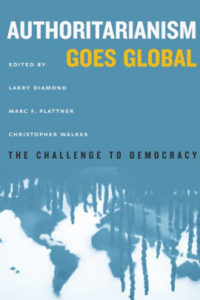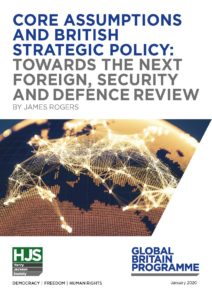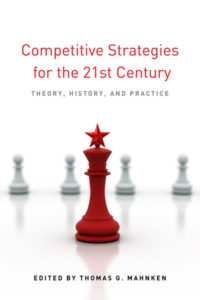After 70 years of being largely hand in hand in promoting democracy and capitalism around the world, the United States and Europe are now at odds over trade, climate change, taxation, privacy, Iran and defense funding, The Washington Post’s reports.
“Europe and America are moving slightly apart from each other,” said Rachel Kyte, dean of the Fletcher School at Tufts University. “It’s not just the trade war but a fundamentally different approach to privacy and the role of business and society.”
 Liberal interventionism was based on three assumptions: the US’s status as guarantor of world order; Europe’s position at the Americans’ side; and the lack of any serious challenger to western dominance, argues Constanze Stelzenmüller, Kissinger Chair at the Library of Congress and senior fellow at the Brookings Institution. Now, the US is in withdrawal, Europe is divided and authoritarian powers are on the march, she writes for The Financial Times.
Liberal interventionism was based on three assumptions: the US’s status as guarantor of world order; Europe’s position at the Americans’ side; and the lack of any serious challenger to western dominance, argues Constanze Stelzenmüller, Kissinger Chair at the Library of Congress and senior fellow at the Brookings Institution. Now, the US is in withdrawal, Europe is divided and authoritarian powers are on the march, she writes for The Financial Times.
Yet retreat is not an option for Europe, with its porous borders and dependence on the mobility of goods and people. Problems have a habit of finding their way to the continent sooner or later. So it has no choice but to deal with them where they originate, she adds.
Liberalism and democracy will continue to consolidate around the world: that’s one of the 15 core assumptions underpinning a strategic approach to foreign policy branded “progressively obsolete” in a report, Core Assumptions and British Strategic Policy, published today by the Henry Jackson Society. The outdated assumptions that no longer apply to the world we live in are:
 Globalisation is an immutable and desirable force;
Globalisation is an immutable and desirable force;- The West will remain technologically dominant;
- Liberalism and democracy will continue to spread;
- ‘Zones of chaos’ are the primary threat;
- Global governance is replacing geopolitical competition;
- The European continent is Britain’s overriding geostrategic concern;
- Britain is central to the Euro-Atlantic System;
- The Gulf and Middle East is of growing importance to British interests;
- The Indo-Pacific zone presents economic opportunities;
- Nations will respect globally ‘shared spaces’;
- Britain is a declining power;
- The pursuit of national security and economic growth are Britain’s primary national interests;
- Britain is best served by working with allies and partners, particularly the US;
- National cohesion is becoming less relevant;
- Military and diplomatic power have declined in importance.
There needs to be a wider recognition on the part of strategists and policymakers that authoritarian powers – like the PRC and Russia – are re-emerging as geopolitical and ideological competitors. As liberal democracy becomes a target for autocrats to undermine, this means that ‘peace’ – as a state of existence – does not exist for such regimes: for them, peace is just another form of war, waged with different means, the report adds:
In the years ahead, the expansion of authoritarian alternatives to liberalism and democracy may force British strategists and policymakers to grapple with competing ideological systems
– amplified by advanced technologies – in a way that they have not needed to do since the end of the Cold War. Indeed, if such illiberal alternatives grow further in strength, there is a risk that
they may even gain significant traction among certain sections of British society, in the same
way that fascism and communism did in the past, undermining the nation’s unity and resolve.
If the UK is to protect the political values and structures it developed and nurtured – and which
have long been the foundation of its national strength – it will need to put new effort into their
protection and promotion.
 The U.S. administration is due to soon formally release its findings from a review of U.S. foreign assistance programs, aimed at “realigning” them for “a new era of great-power competition,” which critics have described as an effort to curb foreign aid overall, say analysts from the International Republican Institute, a core institute of the National Endowment for Democracy (NED). Given this context, aid and development organizations must be prepared to show how their work serves America’s strategic interests. Anti-corruption efforts do just that by striking at the heart of what keeps leaders of adversaries like China and Russia in power, they write in ‘Why Fighting Corruption Is Key in a ‘New Era of Great-Power Competition’, an article for World Politics Review.
The U.S. administration is due to soon formally release its findings from a review of U.S. foreign assistance programs, aimed at “realigning” them for “a new era of great-power competition,” which critics have described as an effort to curb foreign aid overall, say analysts from the International Republican Institute, a core institute of the National Endowment for Democracy (NED). Given this context, aid and development organizations must be prepared to show how their work serves America’s strategic interests. Anti-corruption efforts do just that by striking at the heart of what keeps leaders of adversaries like China and Russia in power, they write in ‘Why Fighting Corruption Is Key in a ‘New Era of Great-Power Competition’, an article for World Politics Review.
As the context and forces that gave birth to the established structures of global governance change, the UK may wish to cooperate more through ad hoc groupings and with like-minded democratic states – even in new organisations and alliances, the report contends. RTWT







